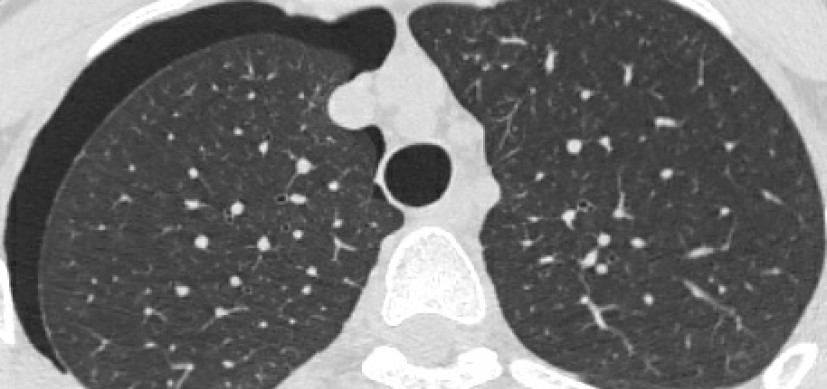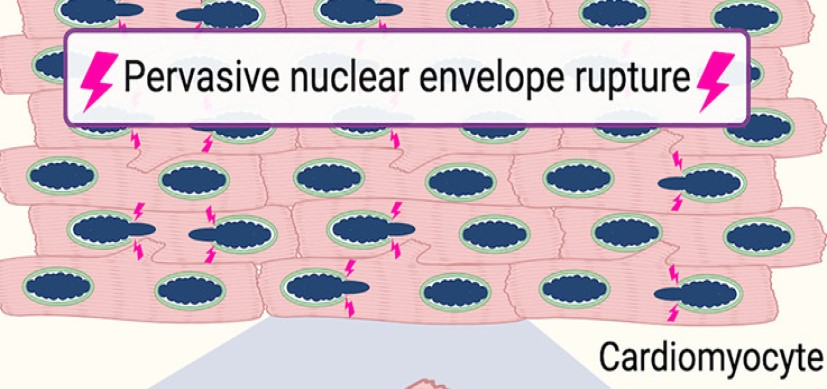Is Your Hospital Prepared to Treat Vaping-Related Lung Injuries?
Research By: Don Hayes, Jr., MD, MS, MEd
Post Date: April 4, 2022 | Publish Date: March 4, 2022

Cincinnati Children’s pulmonologist leads effort to share best practices, maintain vigilance
In 2019, the United States experienced a nationwide outbreak of e-cigarette, or vaping, product use-associated lung injury (EVALI), with more than half of patients requiring admission to an intensive care unit (ICU). According to Don Hayes, MD, pulmonologist at Cincinnati Children’s, this increase in lung injuries is a public health issue requiring a synthesis of best care practices to properly treat.
Hayes is the first author of a paper published March 4, 2022 in CHEST Journal, that compiles recommendations from national pulmonary experts for treating patients admitted to intensive care units with these injuries.
“Not long ago, there was tremendous interest in vaping-related lung injuries. But I think, especially in light of the COVID-19 pandemic, many people believe this problem has gone away,” Hayes says. “The truth is that it hasn’t. These injuries are still being seen, though we’re not positive on the frequency because the CDC has ceased collecting data since the pandemic began. The goal of this study is twofold: to provide information and guidance on treating EVALI patients, and also to put forth a reminder that this is still a problem.”
Device, Substance Data Collection is Key
The study hinges on CDC data from 2,708 confirmed or probable EVALI patients requiring hospital admission. Of those, 1,604 (59.2%) had data available on their ICU admissions. The study reports that 93% of the patients survived to discharge, but 88.5% of the patients required respiratory support.
Diagnostic and critical care considerations include recommendations for patient history, physical examination, bronchoscopy, pulmonary imaging, level of care, pharmacotherapy, and respiratory support.
For example, EVALI should be suspected in patients with a history of using e-cigarette, or vaping, products within the last three months. It also is important to obtain information such as the device, brand, the delivery system, and types of substances used (such as THC, CBD, cannabis, nicotine, modified products, and addition of substances not produced by the manufacturer).
Obtaining this historical information is critical as EVALI patients may present with symptoms similar to those associated with respiratory infections like COVID-19 and influenza. In the analysis, these included respiratory symptoms such as cough, shortness of breath, and chest pain (96.8%), GI symptoms such as nausea, vomiting, abdominal pain and diarrhea (76.1%), or constitutional symptoms such as fever, chills, and weight loss (92%).
Expert Panel Advice Supports Physicians Seeing Few Cases
Hayes says that considerations from experts are important because properly managing public health issues is predicated on awareness and context of what is happening to populations on a large scale.
“In healthcare, it is critical to be aware of, and understand, what’s going on in the public in order to be suspicious of what might be happening with an individual patient. This is why public health is so important,” Hayes said. “The fact is, the average doctor may only see one or two of these EVALI cases, so by pulling this panel of experts, who do see these cases more frequently, we’re able to provide guidance to questions like, ‘What should we be doing, how do we manage this, and should we be doing certain types of diagnostic tests?’”
Hayes says he hopes studies like this continue to raise awareness of EVALI injuries for both the medical community and the public. Lung injuries due to vaping are preventable and dissuading people from being avid users of these products is the primary goal.
However, Hayes recognizes that individuals will engage in harmful behaviors even with a plethora of data recommending the contrary. Because of this, pulmonary and critical care specialists will continue to see EVALI patients and face challenges in caring for them. The best measure caregivers can take, particularly those who don’t these cases often, is to be prepared.
About the Study
Collaborators also include researchers from the National Center for Injury Prevention and Control, the University of California of San Francisco School of Medicine, the Centers for Disease Control and Prevention, Boston University Medical Center, Johns Hopkins University School of Medicine, the National Institute for Occupational Safety and Health, the University of Utah School of Medicine, Emory University School of Medicine, the University of California at San Diego School of Medicine, Brigham and Women’s Hospital, the University of Pennsylvania Perelman School of Medicine, Seattle Children’s Hospital, the University of Washington School of Medicine, The Ohio State University College of Medicine, and the American Thoracic Society.
| Original title: | Pulmonary and Critical Care Considerations for E-Cigarette, or Vaping, Product Use-Associated Lung Injury |
| Published in: | CHEST |
| Publish date: | March 4, 2022 |
Research By







